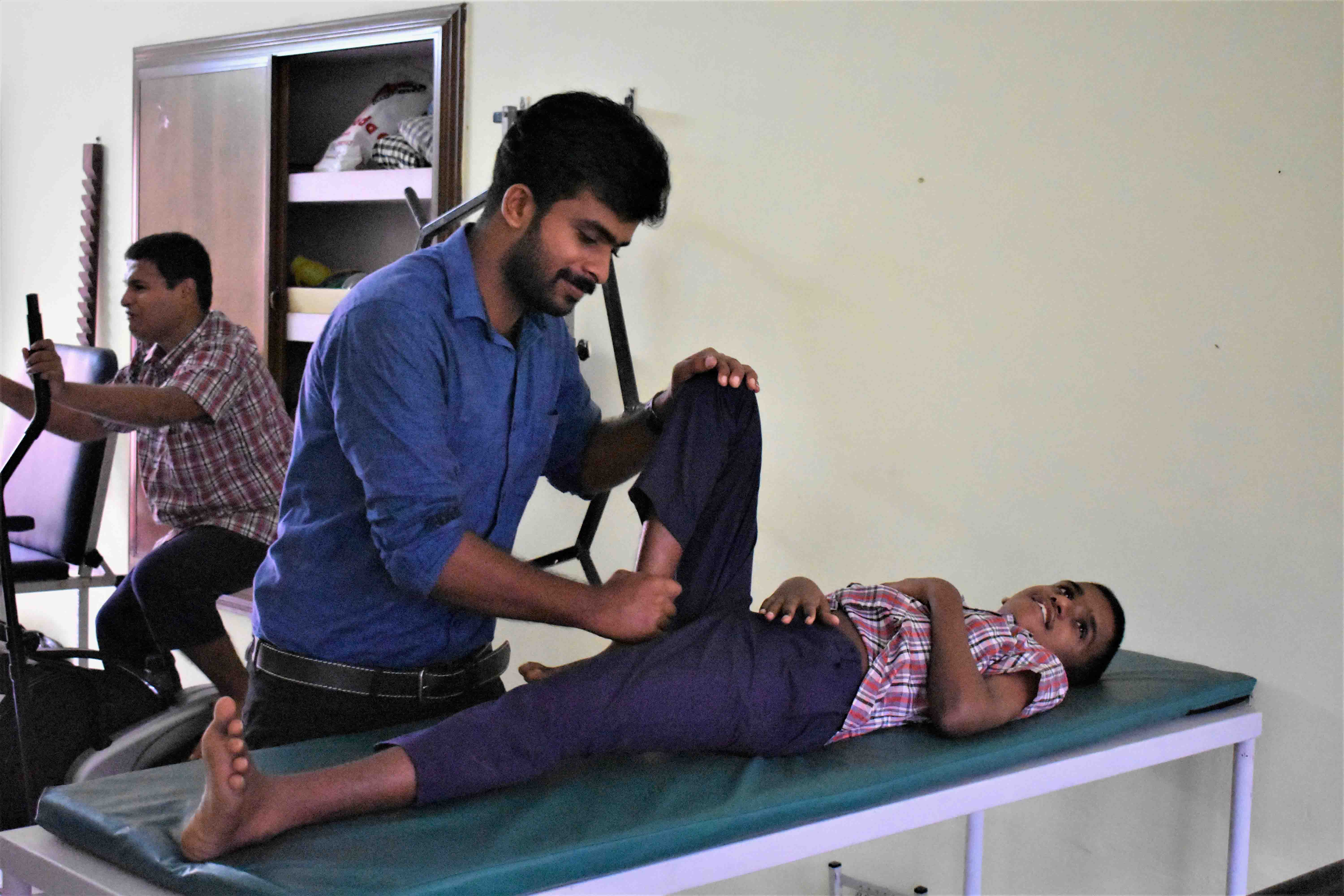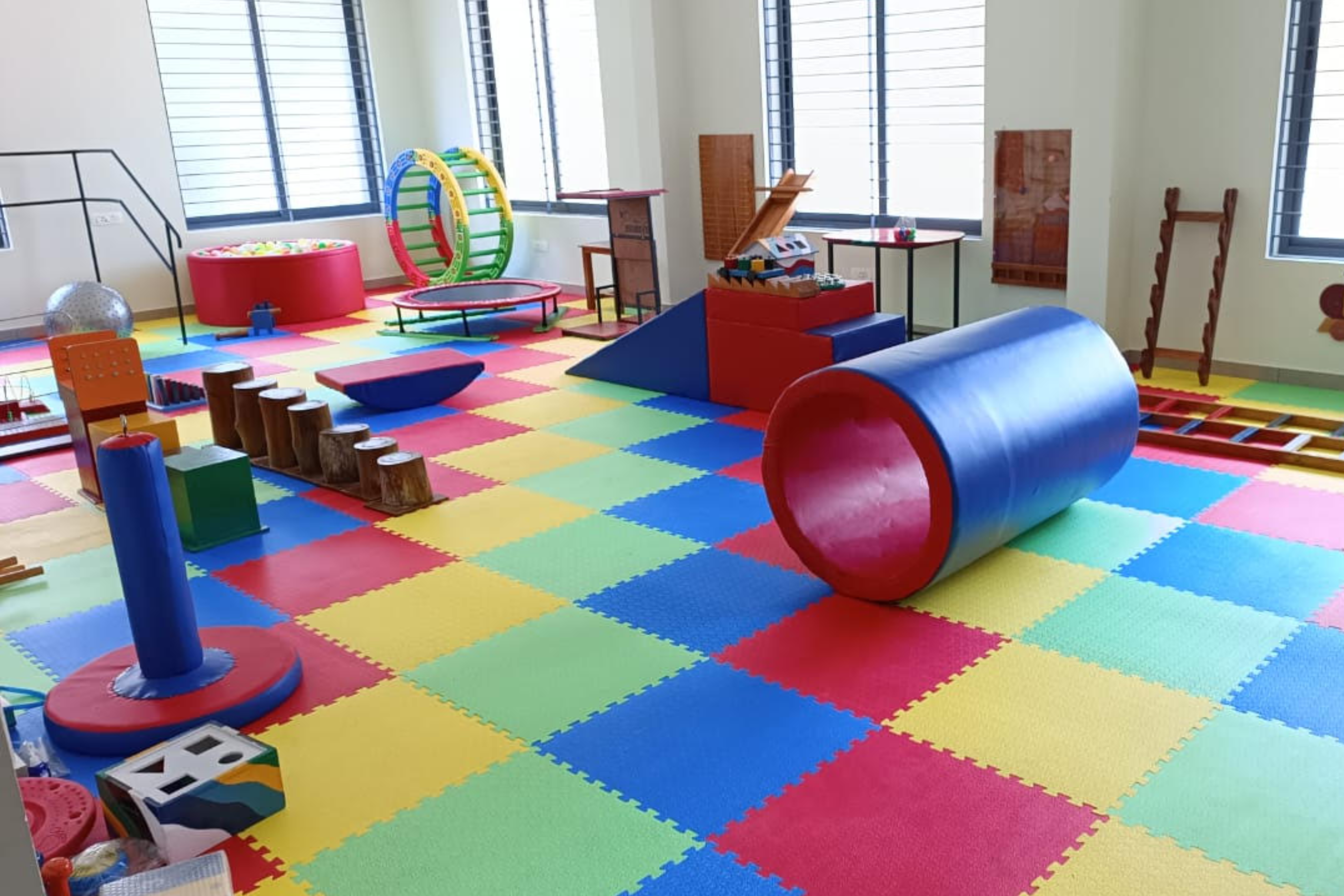Therapies
Therapies provided for children
CENTRE FOR PHYSIOTHERAPY, OCCUPATIONAL THERAPY, SPEECH THERAPY, COUNSELLING AND PSYCHOTHERAPY
Physiotherapy: Physiotherapy is crucial in improving the quality of life for children with intellectual challenges. These children often face developmental delays, motor coordination difficulties, and reduced muscle strength, affecting their overall mobility and independence. Through targeted exercises and specialized techniques, physiotherapy helps address these concerns effectively.
Benefits of Physiotherapy:
- Improved Motor Skills
- Increased Mobility
- Enhanced Posture & Balance
- Better Social Interaction

Therapies
Occupational Therapy
Occupational therapy (OT) is an essential intervention that helps children with intellectual challenges develop the skills they need for everyday tasks. By focusing on enhancing cognitive, physical, sensory, and motor skills, occupational therapists empower children to achieve greater independence and improved quality of life.
Benefits of Occupational Therapy:
- Enhanced Fine Motor Skills
- Improved Sensory Processing
- Better Social & Emotional Skills
- Increased Independence in Daily Tasks

Therapies
Speech Therapy
At St. John of God Autism Centre, we are dedicated to nurturing the growth and development of every child. Our specialised speech therapy program is designed to support intellectually challenged children in improving their communication skills, enhancing their social interactions, and fostering greater independence.Children with intellectual challenges often struggle to express themselves, understand language, or engage in meaningful conversations. Speech therapy provides structured interventions that help improve these essential skills, enabling children to better connect with their families, peers, and the world around them.
The therapy sessions focus on:
- Improving Articulation
- Enhancing Language Skills
- Developing Social Communication
- Strengthening Non-verbal Communication
.png)
Therapies
Counselling
At St. John of God Centre, we recognize the crucial role of counselling in supporting the emotional and psychological well-being of intellectually challenged children. Many children experience anxiety, frustration, or social difficulties, and professional counselling provides them with the tools to navigate these challenges effectively. Counselling helps children develop coping mechanisms, build emotional resilience, and enhance their social skills. It fosters self-confidence, improves relationships, and promotes a sense of security and well-being.
Sessions focus on:
- Emotional Regulation
- Behavioral Support
- Social Skills Development
- Family Counselling
.png)

